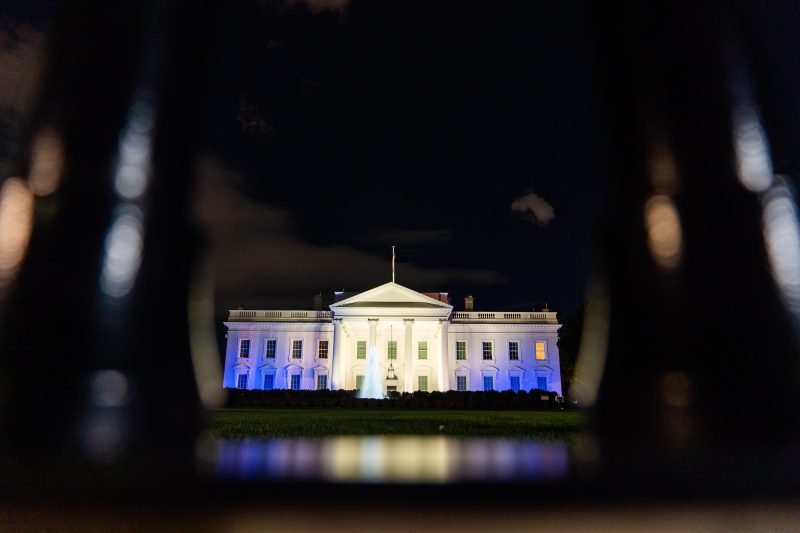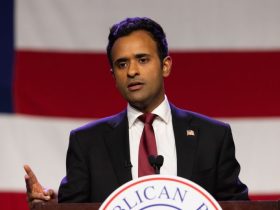President Biden has described the Hamas attack on Israel as evidence of “unadulterated evil” and bloodthirsty “brutality.” He has relayed unconfirmed Israeli reports of decapitated babies. He has evoked the Holocaust, speaking of taking his children to visit concentration camps when they were teenagers.
And as Israeli Prime Minister Benjamin Netanyahu and his top aides contemplated their options earlier this week, Biden told them that if the United States faced such an attack, his own response would be “swift, decisive and overwhelming.”
With the Israeli government signaling that it is readying a ground invasion into the Gaza Strip, Biden’s vocal support for Israel — and his commitment to provide U.S. military assistance — has been striking to political actors on both sides of the aisle. He has won plaudits from pro-Israel Democrats and Republicans, even as some in his party have begun to voice concerns about the scale of collateral damage as Israel responds to the deadliest terrorist attack on its soil.
Israel is now amassing troops along Gaza’s border, and Israeli officials have urged more than 1 million Palestinians to leave the area as conditions in the territory deteriorate badly. With the United Nations, U.S. allies and humanitarian groups expressing concern about the plight of civilians in Gaza, Biden could quickly find himself an outlier on the global stage, said Jon Alterman, director of the Middle East program at the Washington-based Center for Strategic and International Studies.
But Biden’s early embrace of Israel could also give him leverage later, Alterman said.
“The Biden administration’s strong instinct, led by the president, is if you want to have influence with the Israelis, there are some rules. One is you have to show them empathy early,” he said. “What we’ve seen out of the Biden administration is the president in particular trying to keep Benjamin Netanyahu very close, with the premise that when you need to have influence down the road, you need to have that foundation of trust.”
The political reverberations for Biden have already begun to play out domestically.
Officials from the Biden campaign and the Democratic National Committee have highlighted positive responses to Biden’s public remarks this week, including many from unexpected sources. Republicans who have criticized Biden’s foreign policy and accused him of appeasing Israel’s enemies, including Iran, have praised his public comments on the Hamas attacks and his pledge to stand with Israel in its time of need.
“While I have been, and remain, deeply critical of the Biden Administration, the moral, tactical, diplomatic and military support that it has provided Israel over the past few days has been exceptional,” David Friedman, who served as President Donald Trump’s ambassador to Israel, wrote Thursday on X, formerly known as Twitter.
The president has used his remarks this week to voice indignation at those behind the attack that killed more than 1,300 people in Israel, including at least 27 Americans. He has likened Hamas to the Islamic State and al-Qaeda and spoken of his personal connection to Israel, reminiscing about conversations with Prime Minister Golda Meir a half-century ago.
“In this moment, we must be crystal clear: We stand with Israel. We stand with Israel,” Biden said Tuesday, a sentiment he reiterated Wednesday, Thursday and Friday. “And we will make sure Israel has what it needs to take care of its citizens, defend itself and respond to this attack.”
Michael Oren, a former Israeli ambassador to the United States, said Biden’s speech Tuesday could have been delivered by an Israeli prime minister.
“In the fifty years that I have been researching Israel-United States relations, and in the many years in which I served in senior diplomatic posts that bring the two nations together, I do not remember a more pro-Israel speech than that delivered by President Joe Biden on Tuesday night,” he wrote in an opinion piece for the Israeli newspaper Israel Hayom.
Oren, who served under President Barack Obama and knows Biden well, said he was nonetheless surprised by how far Biden has leaned in Israel’s direction.
The president has also voiced strong support for Netanyahu, an embattled leader with whom he shares four decades of history. But their relationship had deteriorated in recent years.
Biden has spoken several times with Netanyahu since the Oct. 7 attacks, repeatedly pledging to give his military everything it needs in its war against Hamas. The at-times tense relationship between the two men, exacerbated by Netanyahu’s push to remake Israel’s judiciary and expand settlements in the West Bank — and Biden’s public criticism of those efforts — has appeared ironclad this week as they have exchanged compliments and assurances.
“We’re surging additional military assistance, including ammunition and interceptors to replenish Iron Dome,” Biden said Tuesday, adding that he would be asking Congress to fund a new aid package for Israel.
Biden’s posture in some sense marks a return to his roots as a traditional pro-Israel Democrat, an attitude that has been challenged by Netanyahu’s hardline policies but seems more comfortable for the president. It has prompted a notable shift in the view from Jerusalem, where Trump was previously seen as a steadfast ally and Biden was viewed with suspicion.
Earlier this week, Trump criticized Netanyahu and called Hezbollah attackers “very smart,” prompting pushback from Republican rivals and pro-Israel activists.
Biden presents his support for Israel as a matter of national policy, but the White House was quick to respond to Trump, who leads the polls for the GOP presidential nomination.
“We don’t comment on 2024. Statements like this are dangerous and unhinged,” White House spokesman Andrew Bates said in a statement that sought to condemn Trump while steering clear of a law prohibiting public servants from using their official positions to engage in political campaigning.
While Biden’s early response has won praise from many, the rapidly deteriorating situation in Gaza has begun to reveal divisions within his party about the wisdom of offering Israel such unwavering support.
Democrats, some of whom previously questioned the United States’ pro-Israel policies, have begun to express concern about the humanitarian crisis unfolding in Gaza. Israel has launched a relentless bombing campaign while cutting off access to water, food and electricity to the dense and impoverished territory of 2 million people. Israeli officials have said the siege will continue as long as Hamas continues to hold more than 150 people hostage.
“This is collective punishment and a violation of international law,” Rep. Alexandria Ocasio-Cortez (D-N.Y.) wrote Thursday on X. “We cannot starve nearly a million children to death over the horrific actions of Hamas, whose disregard for Israeli, Palestinian, and human life overall could not be more clear. We must draw a line.”
Biden has mentioned the importance of upholding the “laws of war” in some of his remarks supporting Israel, a not-so-subtle message to Israeli officials and troops as they gear up for urban fighting.
Those comments reflect Biden’s view that the United States can embrace its “public commitment to stand with Israel” while simultaneously underscoring “the import of actions consistent with laws of war,” said Mara Rudman, a U.S. diplomat in the Obama administration.
U.S. officials have said they have brought up the importance of protecting civilians directly with their Israeli counterparts.
On Friday, after again expressing his support for Israel, Biden spoke in his most direct terms yet about the “humanitarian crisis in Gaza.”
“We can’t lose sight of the fact that the overwhelming majority of Palestinians had nothing to do with Hamas and Hamas’s appalling attacks,” he said. “And they’re suffering as a result as well.”
Amber Phillips contributed to this report.








